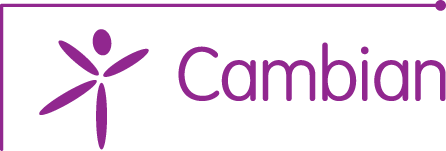Tourette Syndrome (TS) is a neurological condition charaterised by motor (movement) or vocal tics. There is, at present, no definitive cause for TS, although in many cases there is thought to be a familial link. TS generally starts in primary school but becomes really apparent between the ages of 10 and 14. The tics are involuntary and their severity will come and go in a waxing and waning way. Many people with TS do try to control some of their tics but they may reappear with renewed vigour once the control is relinquished. Things often improve as the young person reaches late adolescence. The tics can be very distressing for the young person, causing embarrassment and possible teasing from friends and even family.
Tourette Syndrome is four times more common in boys than in girls, all children with TS will have tics of some sort. Tics are rapid, involuntary movements or sounds. They are very difficult to control and the process of trying to keep them to a minimum can be the cause of constant stress and anxiety.
Over the past few years, this disorder has gained much wider recognition following a couple of excellent television programmes, and several well-known people have described how TS has affected them in their school, social and working lives. Despite being sensationalised in the media, only 10% of people with TS actually swear uncontrollably (known as coprolalia). TS does not affect intelligence or IQ.
Associated Symptoms
As many as three-quarters of children with TS will also have attention/hyperactivity difficulties (ADHD) and/or obsessive compulsive disorder (OCD). Other symptoms can include moodiness, compulsions, obsessions and impulsions, echolalia (repeating of others' words), echopraxia (mimicking others' actions), palallia (repeating internal words or thoughts), coprolalia/copropraxia (swearing/gesturing obscenities), stuttering, apraxia (non-neurological inability to carry out an action, such as reading) and self-destructive behaviours (e.g. head banging, eye poking and lip biting).
Problems
The young person with TS may be quick to lose their temper, may over-react in certain siuations, will have difficulties with impulsivity, and may display defiant behaviour. At school they may have problems organising their work and significant social difficulties due to bullying by peers and classmates.
Treatment
TS cannot be cured but often treatment can achieve some level of control of symptoms. Certain drugs such as Clonidine or Haliperidol can subdue TS and its associated tics but these drugs often have significant side effects. The advice of a doctor must be sought. Any medication needs to be closely monitored so that it can be adjusted according to the progress of the disorder.
Helpful Hints for Home and School
• all agencies (parents, teaching staff, psychologists, etc.) must work closely together
• the national charity Tourettes Action can provide support and guidance
• ensure medication is regularly monitored
• do not draw attention to the tics: try to ignore them and take action to ensure peers do so too
• allow time-out periods so tics can be expressed privately in a safe place. This will help avoid more public outburts
• in class, allow the pupil to sit at the front to enhance concentration
• ensure no teasing or bullying is taking place
• where tics interfere with speech, have systems in place to allow responses to be recorded in private
• arm and head tics may make written work difficult. The use of a tablet, speech to text software and extra time in class and in exams may be useful
• avoid confrontational situations: aim to prevent situations escalating out of control
• be consistent when issuing sanctions. Negotiate these sanctions beforehand in order that the consequences of any aggressive or anti-social behaviours are understood
• be consistent with approaches in all aspects of life
• Be sure to avoid mixed messages from different people
If you would like some advice or more information on our services and what we can do for you, contact us here, or call 0161 507 3723 to discuss a referral in confidence.
For general enquiries, please contact us here.

